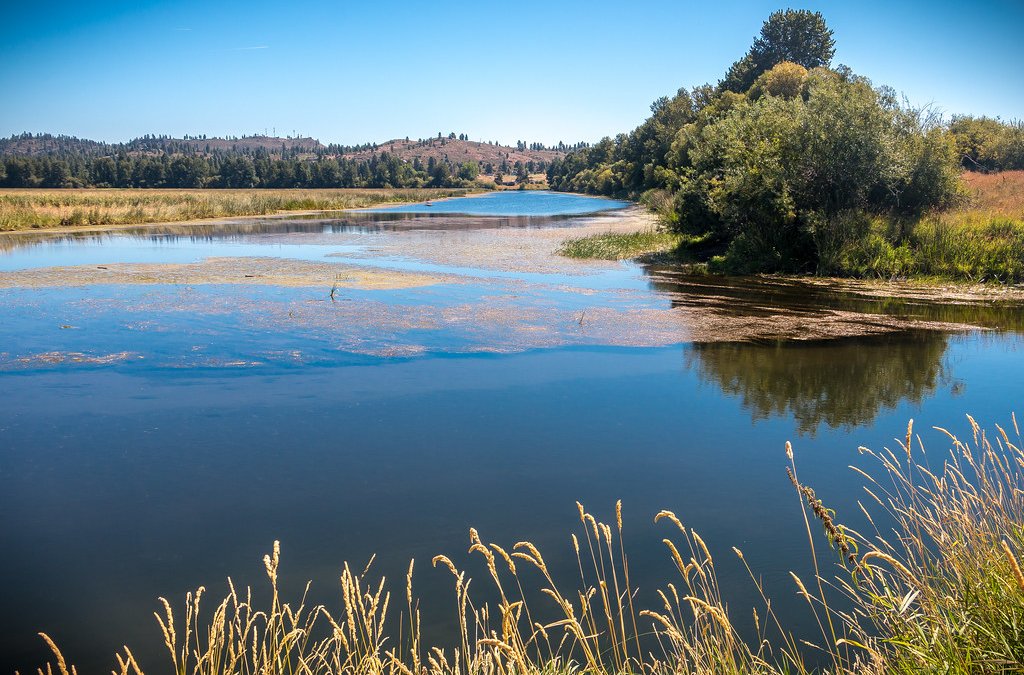WASHINGTON – Partisan discord over the federal government’s regulatory powers was on full display Wednesday during a Senate committee hearing on the implications of a Supreme Court ruling in May that drastically scaled back wetland protections and forced the Biden administration to revise its policies.
At the outset, Sen. Thomas Carper (D-Del.), chair of the Environment and Public Works Committee, slammed the Supreme Court decision in Sackett v. Environmental Protection Agency, saying that scientists estimate half of the nation’s wetlands no longer have protections under the Clean Water Act after the ruling. Carper also cited the important role of wetlands as natural sponges and habitats in addition to sequestering carbon.
“Removing protections for wetlands is especially shortsighted as climate change continues to fuel more extreme weather events, which we witness almost daily,” Carper said.
Carper also noted that Wednesday was the 51st anniversary of the Clean Water Act, which he said has been successful in cleaning up the country’s waters and slowing the loss of wetlands.
The Supreme Court ruling related to the so-called waters of the United States rule, or WOTUS, which defines what kind of bodies of waters that the federal government can regulate. Experts say the Supreme Court ruling in Sackett essentially gutted the Biden administration’s first take on that definition, forcing the EPA to rework its rules.
The agency released its revised rule in late August, and it took effect in early September. The committee’s ranking member, Sen. Shelley Capito (R-W.Va.), however, contended that the Biden EPA had not correctly revised the definition of WOTUS in accordance with the ruling, thus inviting more litigation.
The hearing included a pointed exchange between Sen. Markwayne Mullin (R-Okla.) and Carper.
Mullin spoke of his experience as a citizen of the Cherokee Nation and said that tribes have been continuously fighting for water rights and don’t need more government involvement. He pushed back on the idea that all waters, including wetlands, should be subject to federal regulation.
“Are you not afraid of the overreach of the federal government at this point because I am very skeptical,” Mullin said to Mažeika Patricio Sulliván, director of the Baruch Institute of Coastal Ecology, who had just testified.
When Carper later gaveled to signal the end of Mullin’s time, Mullin retorted that Carper did not do the same to a Democratic senator on the committee who had gone over time. Carper said he only gaveled lightly as a reminder and invited Mullin to continue his remarks. Mullin declined and then left the hearing.
Carper later requested to submit into record an amicus brief in the Sackett v. EPA case by 18 federally recognized tribes who said a narrower definition of Clean Water Act protections would harm their ability to protect against cross-border pollution.
Other environmental advocates also oppose the court decision, which eliminates protections for tens of millions of acres of wetlands and paves the way for further development.
Susan Bodine, a partner at Earth & Water Law, however, contended the Supreme Court’s decision in Sackett is consistent with the history of the CWA. She agreed with Capito’s contention that the Biden administration’s rule revision doesn’t fully implement the court decision.
Bodine also said that there are already protections for wetlands in effect and that states can adopt their own definitions of WOTUS. But advocates for a more expansive definition of WOTUS say that the other protections are not enough and the narrow interpretation contradicts scientific evidence.
“The Court bludgeons science to render an opinion that is catastrophic for water protection across the United States,” Sulliván said in his written testimony. “The Court’s primary conclusion requiring a permanent hydrological surface connection demonstrates a fundamental lack of understanding of how natural waters function and connect across space and time.”
Kourtney Revels, who is a water justice organizer at Bayou City Waterkeeper in Houston, testified on the repeated flooding in her community. In an interview before the hearing, she said policies need to center the community first and foremost.
Decisions “have to be really strategic, but the only way that they can be thought out and strategic is to talk to the people that are going to be the most impacted,” Revels said. “Go and look where these prairie wetlands are and you’ll see what we mean. All you have to do is get in a car and take a ride, and you’ll see the difference.”

